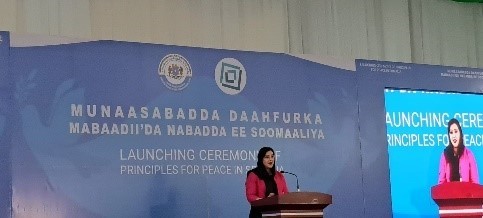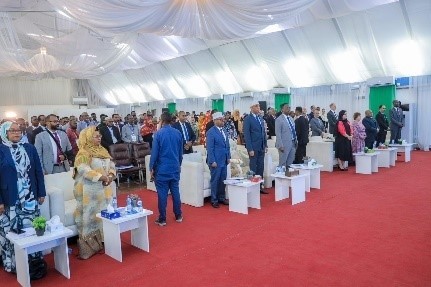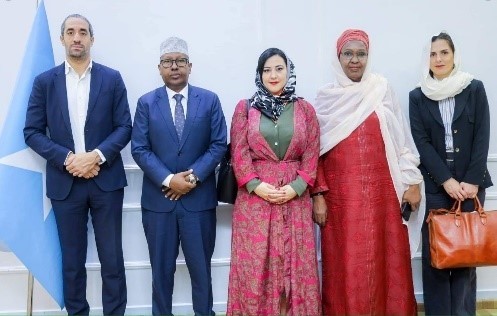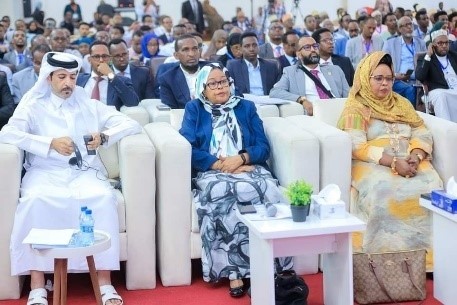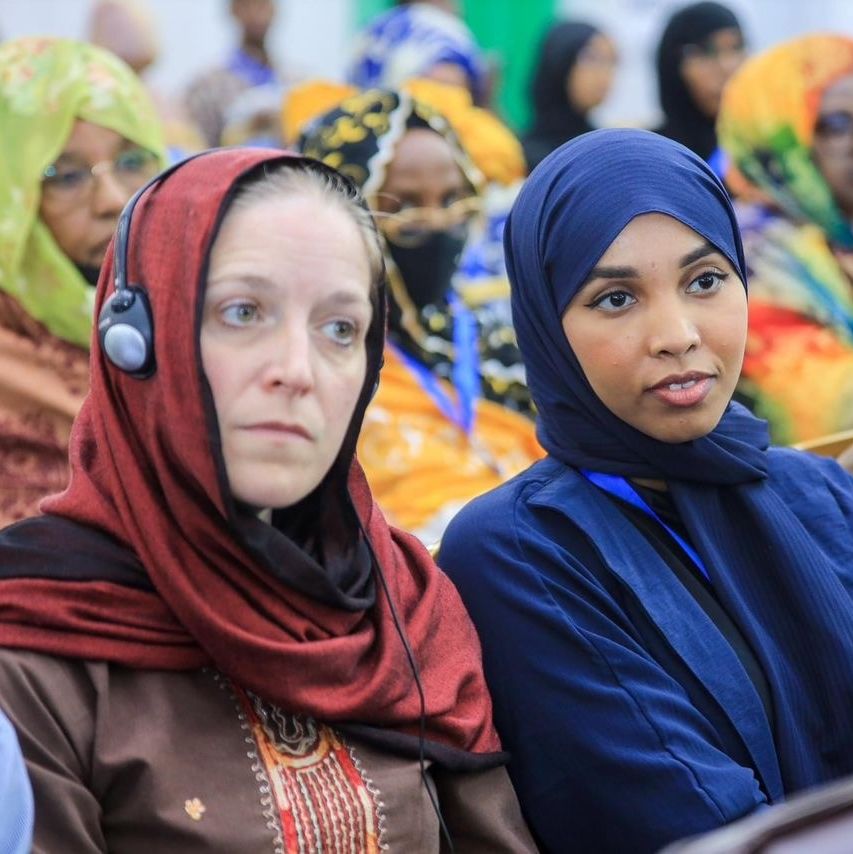Mogadishu, 29 February 2024
Principles for Peace in Somalia
We were honoured to launch the Principles for Peace in Somalia and witness the alignment between P4P and Somalia’s National Reconciliation Framework (NRF), reflecting the interconnectedness of our vision for a renewed approach to peacebuilding.
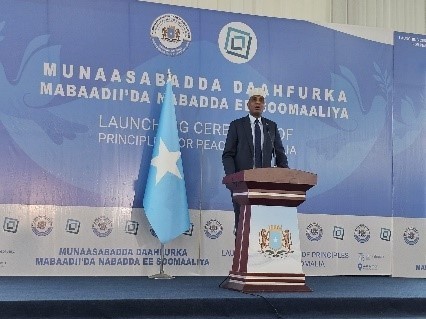
We were honoured to launch the Principles for Peace in Somalia and witness the alignment between P4P and Somalia’s National Reconciliation Framework (NRF), reflecting the interconnectedness of our vision for a renewed approach to peacebuilding. Co-hosting this event with Ambassador Ahmed Moalim Fiqi of the Somali Ministry of Interior, Reconciliation and Federal Affairs (MoIFAR), was a real privilege.
We were thrilled and humbled to hear Minister Fiqi endorsing the inclusion of the Principles for Peace in the text of the Somalia’s National Reconciliation Framework, under the auspices of the Prime Minister H.E. Hamza Abdi Barre.
Eminent speakers, including Catriona Laing, former UN Special Representative of Special Representative for Somalia; Ambassador Mohamed El-Amine Souel, Special Representative of the Chairperson of the African Union Commission (SRCC); Mr. Mohamed Abdi Oogle, Minister of Interior Federal Affairs & Reconciliation of Jubbaland State; And Hon. Mohamed Muhumed Mohamed, Deputy of the Reconciliation Committee of Parliament, welcomed the framework of the Principles for Peace.
We extend our heartfelt gratitude to the members of the P4P Board, Andrew Gilmore, and Dr. Khadija for their invaluable contributions. Special thanks also to our Steve Turner and his students at UPEACE University for their support.
The discussions underscored how the P4P principles Legitimacy and Accountable Security can support rebuilding trust and fostering community relationships in the country. Furthermore, Dignity, Solidarity, and Pluralism emphasize healing past grievances and promoting a culturally sensitive approach to reconciliation. Feedback sessions also underscored the importance of hybrid solutions, involving local communities, and respecting diverse perspectives.
We’re grateful to have learned from civil society and gathered their feedback on the principles. we look forward to continuing our collaboration and welcome new Somali-based members to join our Stakeholder Platform. We are eager to continue our commitment to the Principles for Peace, integrating local voices, championing tolerance, and building legitimate institutions.
Together, we pave the way for a brighter, more peaceful Somalia.

